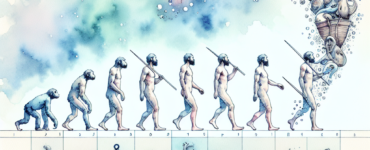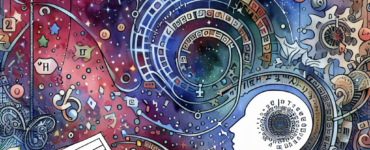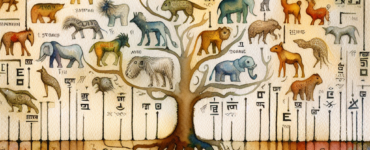How often do you hear or use words like “democracy,” “philosophy,” or “astronomy”? Did you know these terms, deeply embedded in our everyday vocabulary, trace back to ancient Greek?1 The Greek language, spoken since the Bronze Age, has significantly shaped the modern lexicon, especially in the realms of science, politics, and philosophy. Its influence is not just monumental; it is alive, breathing in the very words we speak and write today.1
The story of Greek’s influence on English and many other languages starts in antiquity, around the 8th century BCE, with Homer’s epic poems, which have not only fueled Western literature but also embedded Greek terms into the lexicon. The spread of Hellenistic culture by Alexander the Great and the adoption of Greek by the Roman Empire further cemented its influence. When scholars during the Renaissance sought to revive classical knowledge, they turned to Greek texts, reintroducing and reinforcing Greek terms in the scientific vocabulary2.
Consequently, many scientific, technical, and scholarly terms either come directly from Greek or are constructed from Greek elements. The field of medicine, for example, is replete with Greek terms such as “neuron” (nerve), “cardia” (heart), and “gastritis” (stomach ailment). In science, terms like “physics” (from the Greek “physis,” meaning nature) and “biology” (from “bios,” meaning life, and “logia,” meaning study) clearly showcase Greek roots3.
Moreover, the Greek influence extends beyond specialized terminology. Common words such as “school” (from “scholē,” meaning leisure, but also, study), “echo” (from “ēchō,” meaning sound), and “map” (short for “mappa,” Latin, but initially from the Greek “mappa,” meaning cloth or napkin) reveal the depth of Greek’s impact on English. This influence reflects the role of Greek in early education and scholarship, where Greek was considered the language of intellect and culture4.
The enduring legacy of Greek is not merely in its words but in the ideas and concepts it has transmitted. Democracy (“demos,” meaning people, and “kratos,” meaning power), philosophy (“philos,” meaning love, and “sophia,” meaning wisdom), and theater (“theatron,” meaning a place for viewing) originated from the Greek civilization, reflecting its contributions to politics, thought, and art5.
Perhaps the most fascinating aspect of Greek’s influence is its adaptability. As new concepts arise, the Greek language provides a well of elements from which to create new terms1. The internet era, for instance, has seen the emergence of “cybernetics” from “kybernetes,” meaning steersman, and “logarithm” from “logos,” meaning word, reason, or plan, and “arithmos,” meaning number. This adaptability showcases Greek’s vitality and relevance in the modern world1.
The roots of the Greek language, entwined deeply within the modern lexicon, continue to grow, reminding us of the enduring legacy of ancient culture in contemporary life. Their contribution isn’t just historical; it’s a continuously evolving force, enriching modern language and thought. Let this journey into the past inspire you to explore further and recognize the beauty and power words hold, bridging centuries and civilizations.
As we pour over the terms we encounter daily, let’s marvel at how an ancient language helps us grasp complex modern concepts, connecting us with the ideas, innovations, and wisdom of those who spoke it thousands of years ago. In every word, there’s a story, a world of ancient knowledge waiting to be unlocked. The influence of the Greek language, shaping our communication, is a testament to humanity’s collective and ongoing quest for understanding and expression.
- https://www.britishcouncil.org/voices-magazine/how-has-greek-influenced-english-language [↩] [↩] [↩] [↩]
- https://www.jstor.org/stable/4441190 [↩]
- https://www.etymonline.com [↩]
- https://iep.utm.edu/ancient-greek-philosophy/ [↩]
- https://www.colorado.edu/classics/2018/06/14/hellenistic-period-cultural-historical-overview [↩]







































Add comment